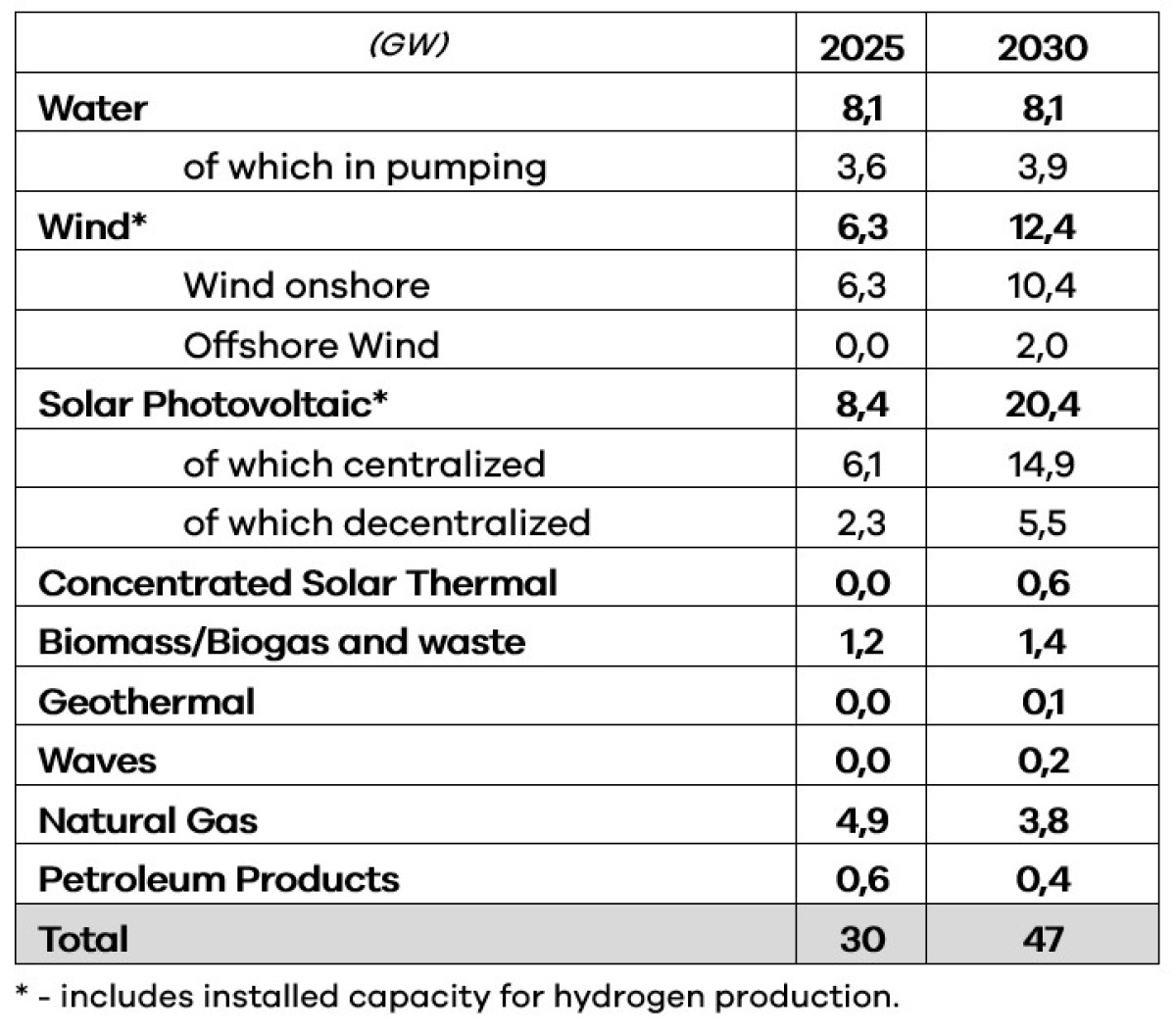NECP 2030 revised
On June 30th, 2023, the Ministry of Environment and Climate Action published a first draft of the revised National Energy and Climate Plan 2030 (NECP 2030). This draft, submitted to the European Commission, is aligned with Portugal's goal of anticipating climate neutrality by 2045, as set forth in the European Climate Law.
This revision will include important changes in energy and climate policy, to ensure the alignment of policies, objectives and targets previously established with this new international and community context - e.g. REPowerEU, Green Deal Industrial Plan, among other new policies and measures.
The NECP 2030, with 58 lines of action and 206 measures, revises the national goals for the 2030 horizon:

The emission reduction and energy efficiency targets remain unchanged from what was established in the initial NECP, similarly to the electricity interconnections with Spain.
In terms of renewables, Portugal has strong arguments to continue building a strategy based on renewable energy sources towards a carbon-neutral economy. The ambition and determination of Portugal to be at the forefront of energy transition is materialized in ambitious targets. In fact, renewables in gross final energy consumption in 2030 rise from 47% to 49%, and the target for renewable sources in transport is raised from 20% to 23%.
In particular, the key drivers for achieving a 49% share of renewables in final energy consumption in 2030 have been defined, focusing on the electrification of the economy and consumption, the evolution of installed capacity and renewable-based electricity production, the strong penetration of the electric vehicle and other sustainable mobility solutions, the introduction of renewable gases, high efficiency technologies in various sectors, and research and innovation. An equally important vector is the promotion of the implementation of power generation centers that bring production and energy consumption closer together, allowing the evolution towards an increasingly decentralized model, with a focus on individual and collective self-consumption solutions, with advantages in terms of losses in the distribution and transport of energy, among others.
The NECP includes the end of electricity production from coal in 2021, in Pego, and by 2023, in Sines; the focus on energy from renewable sources, with the doubling of solar capacity, promoted through capacity auctions; the focus, in the next decade, on the production and incorporation of renewable gases, such as hydrogen and biomethane; limiting the sale of new light vehicles powered exclusively by fossil fuels until 2035 or banning the use of natural gas of fossil origin for power generation after 2040, provided that the security of supply is ensured.
Considering the scenario envisaged for the evolution of the electrical generation sector in Portugal, it is expected that renewable energy will contribute with 90% of electricity production in 2030, with wind energy standing out with about 36% and solar with about 39%, which will be the technologies that will show the greatest growth in the next decade.
Onshore wind energy is boosted from 6.3 to 10.4 GW in 2030. Offshore wind with an operational capacity of 2 GW in 2030, as a result of the first auction for capacity reservation title and title of private use of maritime space - 4 lots (1 lot in Viana do Castelo, 1 lot in Sines and 2 lots in Figueira da Foz).
The biggest growth will come from solar energy, with an operational capacity of 20.4 GW expected by 2030.
Among other revised renewable energies, in total, in 2030, Portugal should have an electricity production capacity of 47 GW, above the 32 GW foreseen in the NECP in force and well above the 23 GW of installed capacity today.
Outlook for the evolution of the installed capacity for electricity generation by technology in Portugal in the 2030 horizon, based on planned policies and measures - WAM Scenario

More info: Draft PNEC.pdf

